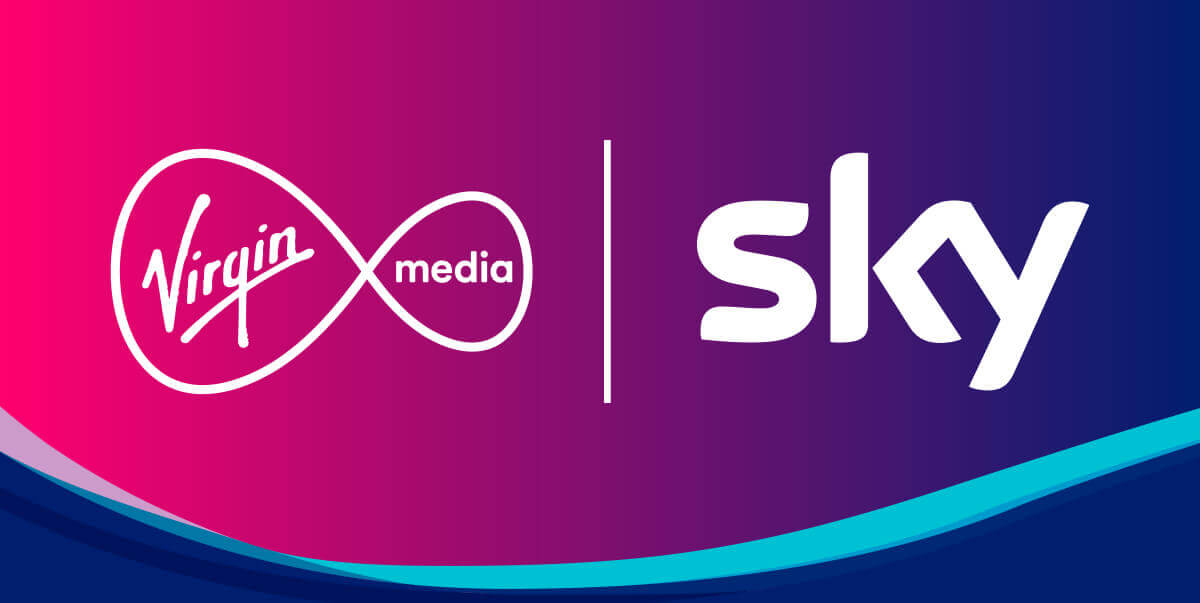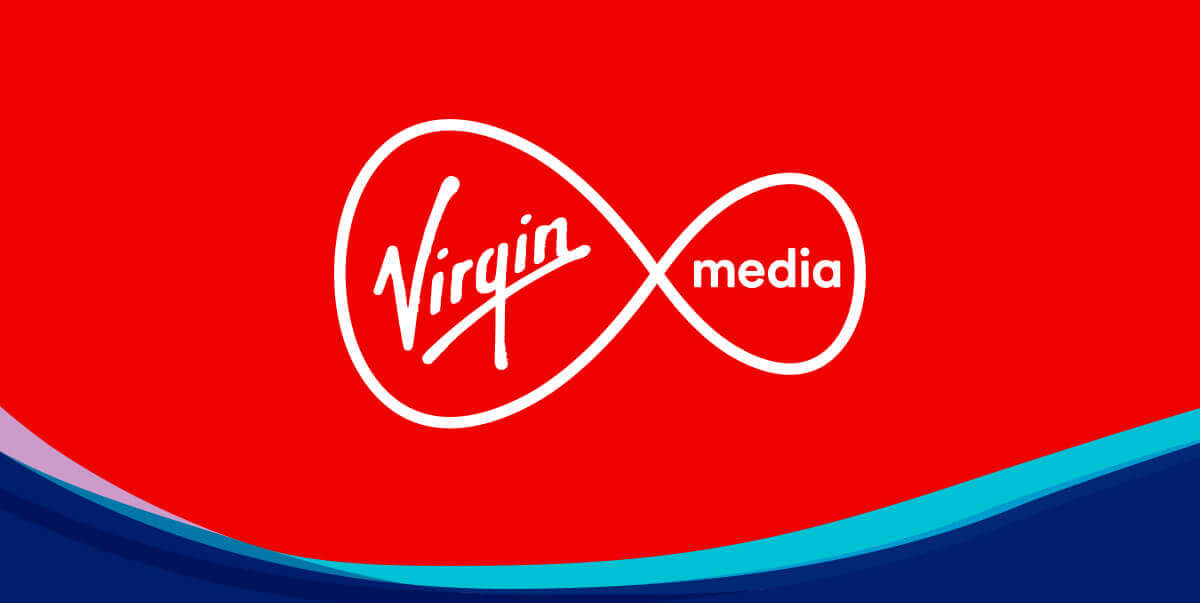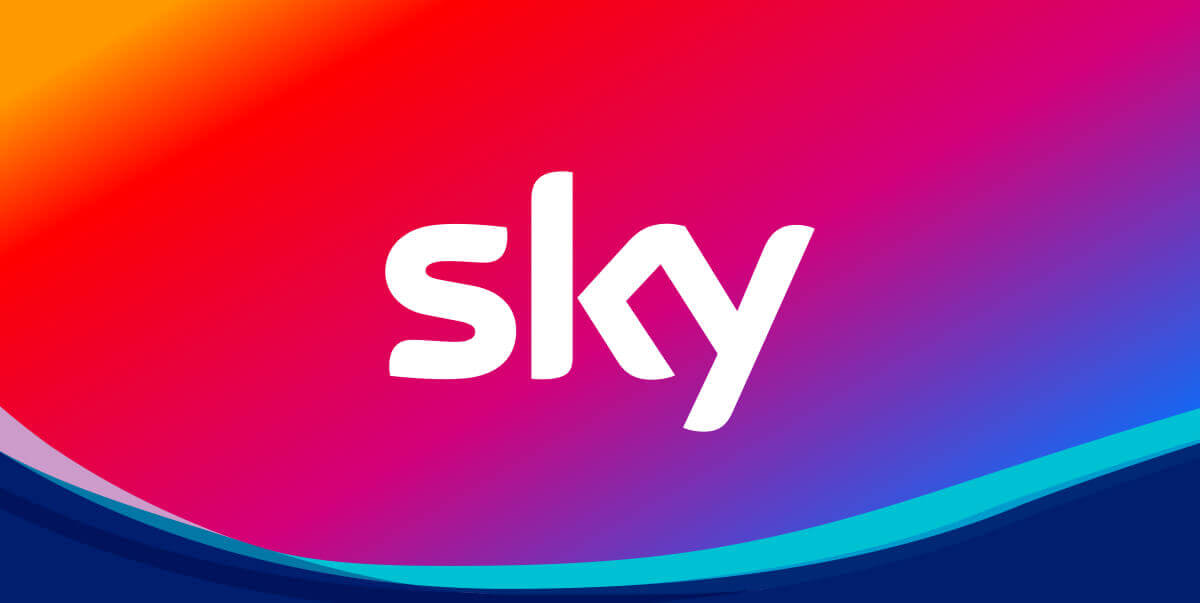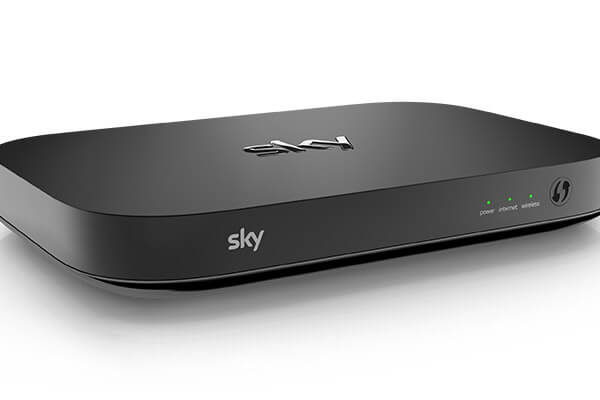Sky broadband vs Virgin Media broadband
Dan Howdle | May 25th, 2023

It’s the battle of the media giants as Sky goes head-to-head with Virgin Media in the quest for broadband customers. Virgin Media once ruled supreme when it came to speed, but thanks to the rollout of full fibre by Openreach, Sky can now hold its own in this department too. So how can you choose between the two? We run through some of the key differences between Sky and Virgin broadband below.
Key feature comparison
Here's a quick feature comparison on how Virgin Media and Sky stack up.
| Feature | Sky broadband | Virgin Media broadband |
|---|---|---|
| Download speeds | Up to 900Mbps | Up to 1.1Gbps |
| Upload speeds | Up to 90Mbps | Up to 104Mbps |
| Router | Sky Hub | Virgin Media Hub |
| Network | Openreach | Virgin Media |
| Our review |
Broadband speed

Winner: Virgin Media
A big tick goes to Virgin on this one as you can still get the fastest speeds possible for broadband on this network, although check first exactly what speeds you can get at your postcode, otherwise it may be worth looking at Sky.
When it comes to speed, Sky advertises a maximum average of 36Mbps and 59Mbps for its two Superfast fibre packages, and three full fibre speeds of 145Mbps, 500Mbps and 900Mbps.
These speeds are, by and large, on a par with other providers operating over the Openreach network. The availability of full fibre broadband will vary according to where you live. Openreach states that currently it extends to around a third of the population.
Virgin’s lowest advertised speed averages 54Mbps. Virgin uses its own cabling network, rather than the Openreach network, so it can offer a top speed faster than that of the other providers. On average, Virgin customers receive speeds very close to those advertised, and in many cases, faster than those advertised. However, this is now also the case with customers choosing a full fibre service with Sky (or any other full fibre provider).
Virgin Media offers average speeds of 54Mbps, 132Mbps, 264Mbps, 362Mbps, 516Mbps and 1130Gbps, known as Gig1. This puts Virgin ahead of the other providers for its top speed – even those offering full fibre, which usually has a top limit of 900Mbps.
Another important factor to consider is upload speeds. This gives an indication of how long it takes to upload a photo or send any other information to the web. Sky offers upload speeds of 9Mbps with its Superfast 35 package and 20Mbps on its Superfast 59Mbps deal. For its full fibre packages, customers will receive 27Mbps upload speed with its Ultrafast package (145Mbps), 60Mbps with Ultrafast Plus (500Mbps) and 90Mbps with Gigafast (900Mbps).
Virgin's upload speeds differ slightly and while you may be getting fast download speeds, its uploads aren’t equally speedy. Its M50 service has upload speeds of 5Mbps, you get 20Mbps with M125, 25Mbps with M250, 36Mbps with M350, 52Mbps for M500, and to get the maximum of 104Mbps, you have to sign up to Gig1. These last two were recently doubled, so Virgin no longer lags behind the 90Mbps upload speed offered by Sky with its 900Mbps Gigafast package.
-
 £50 Bill CreditM125 Fibre Broadband
£50 Bill CreditM125 Fibre Broadband- 132Mb average speed +
- Unlimited usage +
- No phone line
- £50 Bill Credit
- No 2024 Price Rise
£26.50 per month(prices may change during contract)£50 Bill Credit£0 one-off cost18 month contract -
 M500 Fibre Broadband
M500 Fibre Broadband- 516Mb average speed +
- Unlimited usage +
- No phone line
£33.99 per month(prices may change during contract)£0 one-off cost18 month contract -
 £55 Bill CreditM250 Fibre Broadband
£55 Bill CreditM250 Fibre Broadband- 264Mb average speed +
- Unlimited usage +
- No phone line
- £55 Bill Credit
- No 2024 Price Rise
£30.50 per month(prices may change during contract)£55 Bill Credit£0 one-off cost18 month contract
Packages

Winner: Virgin Media
With Sky’s introduction of full fibre packages, there is little to choose between the two providers. Both offer a range of speeds to suit every household along with the option of a phone line. However, with Virgin demanding a 24-month contract for some of its packages, Sky wins by only tying in customers for 18 months, regardless of the package they choose.
Sky has five broadband packages, all of which come on an 18-month contract. It offers two superfast fibre packages,referred to as Superfast 35 and just Superfast, that come with download speeds of 35bps and 59Mbps respectively. It also has three full fibre packages, described as Ultrafast, Ultrafast Plus and Gigafast, which offer 145Mbps, 500Mbps and 900Mbps download speeds respectively. These are only available in areas where Openreach has rolled out its full fibre cables, however; currently around 30 per cent of UK homes.
Like most other providers, Sky no longer advertises a standard broadband connection of 11Mbps – this is only offered to those few customers who cannot get any kind of fibre service at all at their address.
Customers wanting a home phone service can choose to pay extra for one of three Sky Talk phone packages that give you either evening and weekend calls, anytime or international calls. This is available on any Sky package – even the full fibre packages, where customers will be provided with a digital phone line. Sky Superfast packages come with a traditional landline and pay-as-you-talk calls as standard, whereas customers buying a full fibre deal can choose whether to have a home phone and internet calls or not.
Virgin Media operates over its own network and so the speeds it offers are a little different from providers on the Openreach network – like Sky. Virgin’s packages start with M50 that offers speeds averaging 54Mbps. That can be doubled to M125 (averaging 132Mbps) or doubled again to M250 (averaging 264Mbps). It also offers an average of 362Mbps on M350 service, 516Mbps on M500 and 1130Mbps on its Gig1 package.
All Virgin Media packages come on either an 18-month or 24-month contract. Virgin no longer offers a one-month contract option.
Customers can choose broadband-only or broadband and phone deals. If you choose the latter, you will receive weekend calls as standard. You can upgrade your phone package to include anytime calls and international calls as well. Virgin’s broadband and phone deals cost a few pounds more a month than its comparable broadband-only plans.
Customer service

Winner: Sky
When you are a big broadband provider you are always likely to have higher levels of complaints than others purely because you have a bigger customer base. However, it seems that Virgin Media does not do as well as it once did with customer service, with Sky beating it in every category in Ofcom’s latest research into customer service satisfaction.
It may surprise you to know that neither of these broadband giants come out on topin Ofcom’s most recent survey. The overall winner in almost all categories was in fact BT. Relatively, neither provider shone when it came to how they treat their customers. Just 78 per cent of Virgin Media customers were satisfied with their service overall, whereas Sky performed better overall with 84% – just over the sector average of 83 per cent.
Virgin did not do very well regarding complaints either, with 78 complaints to Ofcom per 100,000 subscribers against just 21 for Sky. Equally, Sky did fairly well with how it deals with complaints, with 54 per cent of customers happy with how their complaint was dealt with, against just 45 per cent of Virgin Media customers. Virgin also had more customers with a reason to complain about their service than Sky did, with 23 per cent against just 16 per cent of Sky customers. In fact, Sky came out top in this category, beating all other providers featured in the Ofcom report.
Virgin Media offers live chat online as well as a messenger text service, or you can phone customer services on 0345 454 1111 seven days a week. Sky customer service is also available seven days a week on 0333 7591 018. Both providers also offer a Community forum where you can find answer questions, and also run social media accounts on Twitter and Facebook where you can get in touch.
When it comes to waiting times to get through to customer services, Virgin Media performs poorly, with customers waiting 3 minutes and 45 seconds on average to get through, while Sky customers fare much better, waiting 2 minutes and 17 seconds on average, just slightly longer than the sector average time of 2 minutes and 16 seconds.
-
 £70 Gift CardUltrafast Plus
£70 Gift CardUltrafast Plus- 500Mb average speed +
- Unlimited usage +
- PAYG calls
- £70 Gift Card
£33.00 per month(prices may change during contract)£70 Gift Card£5 one-off cost24 month contract -
 £65 Gift CardSuperfast
£65 Gift CardSuperfast- 61Mb average speed +
- Unlimited usage +
- PAYG calls
- £65 Gift Card
£27.00 per month(prices may change during contract)£65 Gift Card£5 one-off cost24 month contract -
 £110 Gift CardGigafast
£110 Gift CardGigafast- 900Mb average speed +
- Unlimited usage +
- PAYG calls
- £110 Gift Card
£43.00 per month(prices may change during contract)£110 Gift Card£5 one-off cost24 month contract
Router and technology

Winner: Virgin Media
Sky and Virgin are neck-and-neck for this one. Virgin Media just nudges ahead with its superior Hub 5, although this is only available to Gig1 customers.
Whichever one of these you choose, you will be getting some top-notch kit. Unlike other providers, Sky offers everyone the same Sky Broadband Hub router to both fibre and full fibre customers. Virgin Media also offers the same Hub 4 router to all its customers except those who sign up for the Gig1 service; they will receive the latest Hub 5.

All Sky customers get a Sky Broadband Hub with their broadband package. It comes with four ethernet ports, 2.4GHz and 5GHz antennas, and will let you connect up to 64 devices at the same time. Sky Hubs are also designed to save energy and will automatically switch to low power mode when not in use.
Virgin supplies the Virgin Media Hub 4 to all its broadband customers regardless of the speed they choose. The only exception to this is Gig1 customers, who will be provided with the Hub 5, which operates on the latest WiFi 6 standard, meaning it can support even faster speeds and more devices. The Hub 4 has four ethernet cables and 2.4GHz and 5GHz wireless channels. It also has seven internal antennas that should help to boost your speeds.
Extras

Winner: Sky
There is barely anything to differentiate these two on extras, but since Virgin no longer intends to offer its free public wifi hotspots, Sky wins with its thousands of free hotspots courtesy of The CLoud.
All Sky customers can enjoy the reassurance provided by the Sky Broadband Shield antivirus protection. This software lets you filter websites and customise your privacy settings into age categories. There is also a neat watershed feature that lets you set age rating restrictions depending on the time of day.
You can also use your internet on the move with the Sky WiFi app. This gives users free and unlimited wi-fi in thousands of popular places across the UK such as cafes and restaurants. It can be used on six registered devices. Many public places will already offer free wifi, but access to The Cloud hotspots gives you an added option where there is less availability.
Virgin Media is pretty similar when it comes to extras. Users get free online protection with Virgin Media Web Safe, that keeps your home free from viruses and malware and also includes parental controls. For an additional layer of protection on individual devices, customers can choose to add Virgin Media Internet Security. Powered by McAfee, experts in internet security, this software is free for three months and chargeable at £3 per month thereafter.
Overall

Winner: Virgin Media
Sky and Virgin are very closely matched as broadband providers, with both offering top-quality routers, ultrafast speeds and online security packages. Virgin still offers the fastest download speed, however, averaging 1130Mbps with its Gig1 service, and its Hub 5 router, although only available to Gig1 customers, is superior to the Sky Broadband Hub.
When it comes to customer service however, Sky outdoes Virgin Media in all areas, which may be something worth considering when making your decision. Pricewise, the providers are also equally matched, with Virgin on average just fractionally cheaper than Sky.
Ultimately your choice of provider is likely to come down to cost, and, if you want ultrafast speeds, availability in your area.